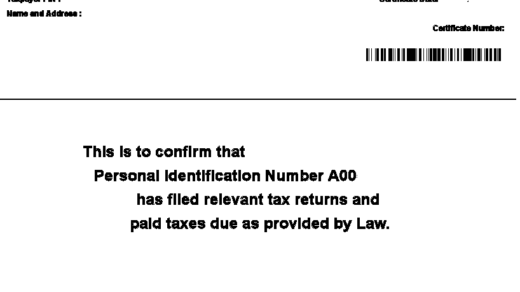In Kenya, the Personal Identification Number (PIN) is a crucial identifier for individuals and businesses alike, playing a pivotal role in the taxation and regulatory processes.
This article serves as a comprehensive guide to PIN registration, covering who should register, the process of registration, and the various transactions and activities that require a PIN.
Who Should Register for a PIN?
Individuals or businesses that fall under the following categories are required to register for a PIN:
- Those with accrued or expected tax liabilities under the Income Tax Act or the Value Added Tax Act, 2013.
- Individuals or entities expecting to manufacture or import excisable goods.
- Those anticipating the supply of excisable services.
How to Register for a PIN
The registration process for a PIN involves the following steps:
- Submit an application in the prescribed form.
- Accompany the application with necessary documents, including proof of identity.
- Submit the application within thirty days of becoming liable for the applicable tax.
Transactions Requiring a PIN
A PIN is necessary for various transactions and activities, including:
- Registration of titles and stamping of instruments.
- Approval of development plans and payment of water deposits.
- Registration of motor vehicles, transfer of motor vehicles, and licensing of motor vehicles.
- Registration of business names.
- Registration of companies.
- Underwriting of insurance policies.
- Trade licensing.
- Importation of goods and customs clearing and forwarding.
- Payment of deposits for power connections.
- All contracts for the supply of goods and services to government ministries and public bodies.
- Opening accounts with financial institutions and investment banks.
- Registration and renewal of membership by professional bodies and other licensing agencies.
- Registration of mobile cellular pay bill and till numbers by telecommunication operators.
- Carrying out business over the internet or an electronic network, including through a digital marketplace.
Key Points to Note
- Compliance with Tax Laws: A person liable for tax under a tax law must comply with the provisions of that tax law and the Income Tax Act regarding registration.
- Commissioner’s Decision: The Commissioner shall register an applicant if satisfied that the person is liable for tax under a tax law. Refusals are communicated in writing within fourteen days.
- Additional Registration: The Commissioner may use the submitted information to register or license the applicant under other tax laws without a separate application.
- Commissioner’s Discretion: The Commissioner may, at their discretion, register a person who was required to apply for registration but failed to do so.
- Notification of Registration: Individuals registered under the Commissioner’s discretion are notified in writing of their registration.
How to Register Online
The PIN registration process for both companies and partnerships is initiated online via iTax:
- Visit the iTax website.
- Select “New PIN Registration.”
- Fill out the online form accurately.
- Upload relevant documents, including business registration certificates and PINs of company directors or partnership members.
- Submit the online application.
Conclusion
PIN registration is a fundamental step for individuals and businesses in Kenya to comply with tax laws and engage in various transactions.
Understanding the registration process, eligibility criteria, and associated requirements ensures a smooth and efficient experience for entities seeking to obtain a PIN for legal and tax compliance.




